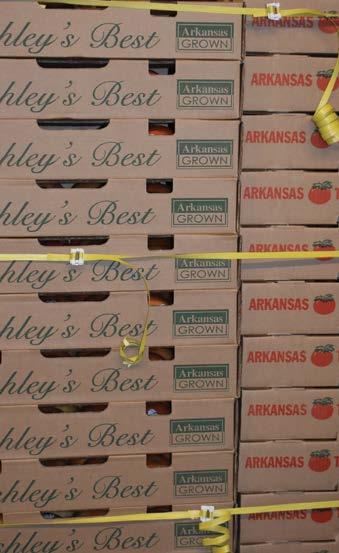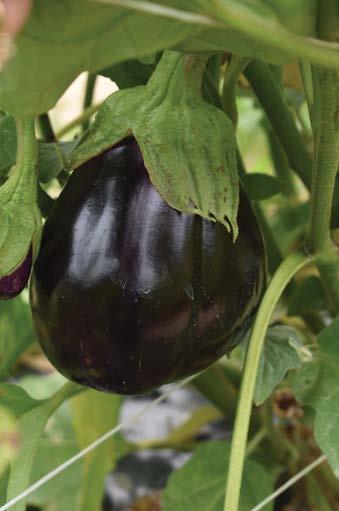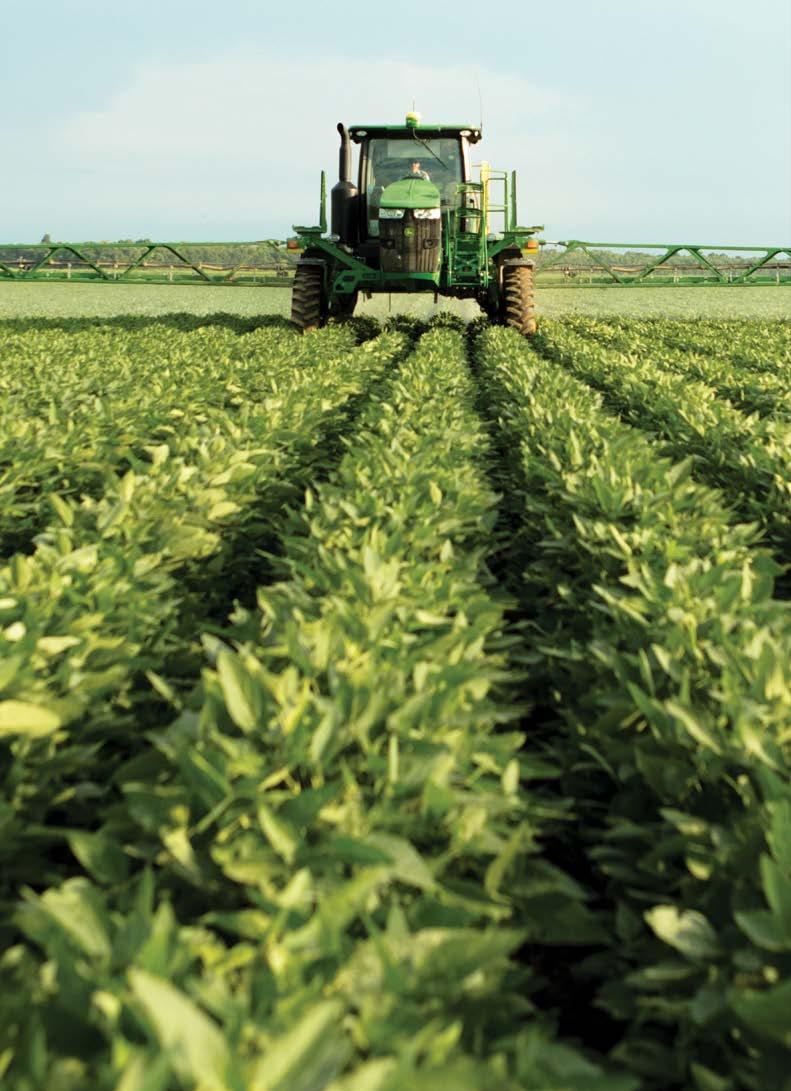
25 minute read
Soy Checkoff Checks in on Arkansas Arkansas Hosts National Soybean Leaders
Soy Checkoff Checks in on Arkansas
Arkansas Hosts National Soybean Leaders
Advertisement
For 50 years, the Arkansas Soybean Promotion Board has steadfastly supported the state’s soybean industry. During that time, Arkansas has become one of the nation’s top soybean producing states. In addition to producing high-quality soy, Arkansas has also cultivated generations of highquality leaders who have carried on the greatest traditions of agriculture, persevered through the good and lean years, and helped shape the industry we know today. One of the most recognizable faces among the current generation is Jim Carroll III, Brinkley farmer and United Soybean Board and Arkansas Soybean Promotion Board Past Chair. Those who know Carroll, know he is passionate about the soybean industry. More specifically, he is passionate about the “Arkansas” soybean industry. It is the pride and confidence Carroll has for his state and neighbors that makes him such a unique leader and advocate for Arkansas soybean producers. During his term serving as United Soybean Board (USB) Chair in 2020, one of Carroll’s priorities was bringing the 78 farmerleaders serving on the USB to Arkansas to witness for themselves the innovative work being done in Arkansas by his peers. Until then, Arkansas has rarely had an opportunity to bring the full attention of the board into focus. Regrettably the spread of the global pandemic that year squashed Carroll’s plans. However, two years since that dream was snuffed, the board has banded together to make good on Carroll’s promise to his fellow producers in Arkansas. In February 2022, the United Soybean Board will convene in Little Rock, with the Arkansas soybean industry taking the spotlight in the center of the national stage.
“Soybeans are our “Being involved on the state’s largest row state and national soy checkoff boards for 25 crop, with half of each years, I’m delighted to year’s harvest being have Arkansas as the exported and the other host state for United half being processed into oil or soy meal...” Soybean Board’s February 2022 board meeting. It affords an opportunity for our state soybean leaders to interact with national leaders, who are all involved in stewarding farmers’ checkoff investments to build demand for U.S. soy,” Carroll said. “This meeting will provide a unique forum for education and relationship building that will strengthen our soybean leadership overall.” Carroll added, “After the pandemic prevented the chance to host USB’s board meeting in Arkansas last year, I look forward to our national leaders coming to Little Rock and having an opportunity to meet our state soybean board leaders. I understand the sacrifice it takes to be away from the farm, but this will be an invaluable chance to
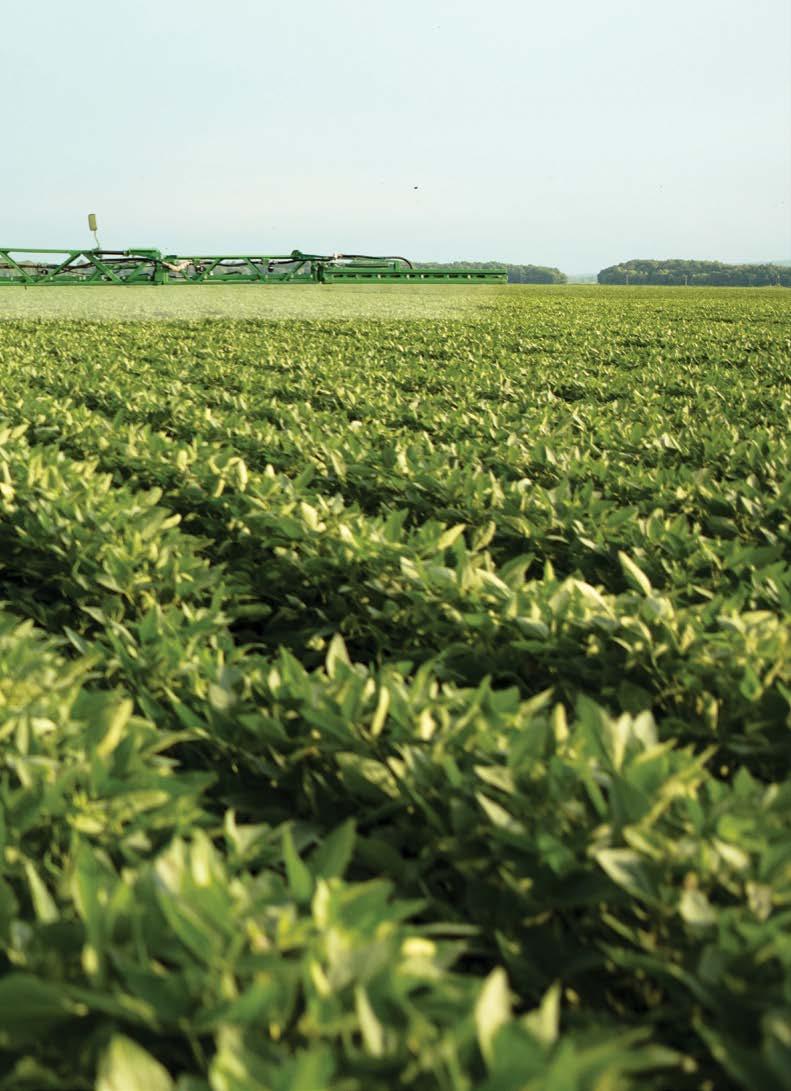
make new friends, share ideas, and move the business of soy forward.” Bringing USB to Arkansas holds a great deal of intrinsic value for the soybean and ag industry. Farmer-leaders from across the country will congregate in the Natural State and have the opportunity to observe the uniquely innovative collaborations local producers have fostered with their counterparts in the poultry and livestock sectors.
“Soybeans are our state’s largest row crop, with half of each year’s harvest being exported and the other half being processed into oil or soy meal for our state's commercial poultry businesses,” Carroll said. “Our state’s soybean farmers walk hand-in-hand with our poultry producers, making sustainability full circle by growing the soybean feed and using their chicken litter – one nourishing our animals and the other nourishing our crops, which provides tremendous value.” Carroll continued, “Thanks to our state’s commercial poultry businesses, Arkansas ranks fourth in the nation in soybean consumption, so the importance of soybean production to Arkansas cannot be overstated. Animal agriculture consumed 1.75 million tons of soybean meal in 2014 and contributes $15.98 billion to Arkansas’s economy. The business of agriculture is vital to our state and soybean production is an essential component that connects it to our nation and the world.” Learn more about the Arkansas Soybean Promotion Board at TheMiracleBean.com.
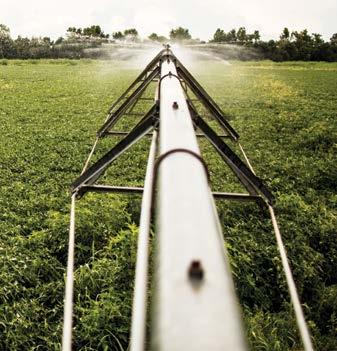
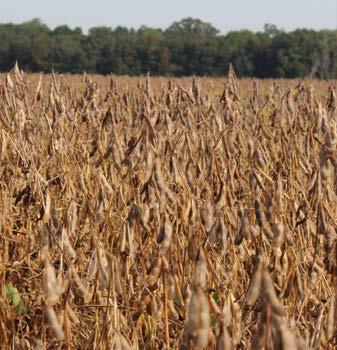
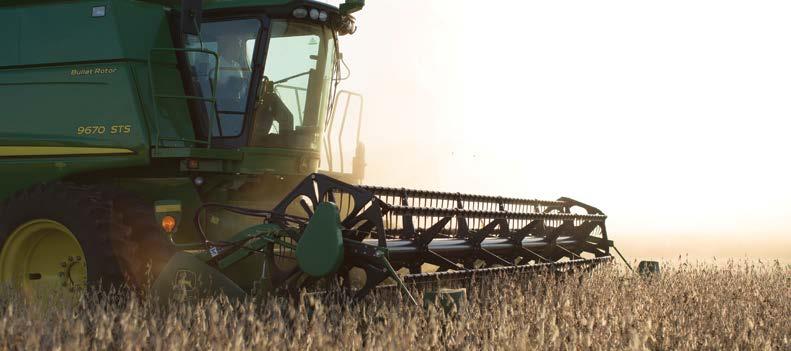
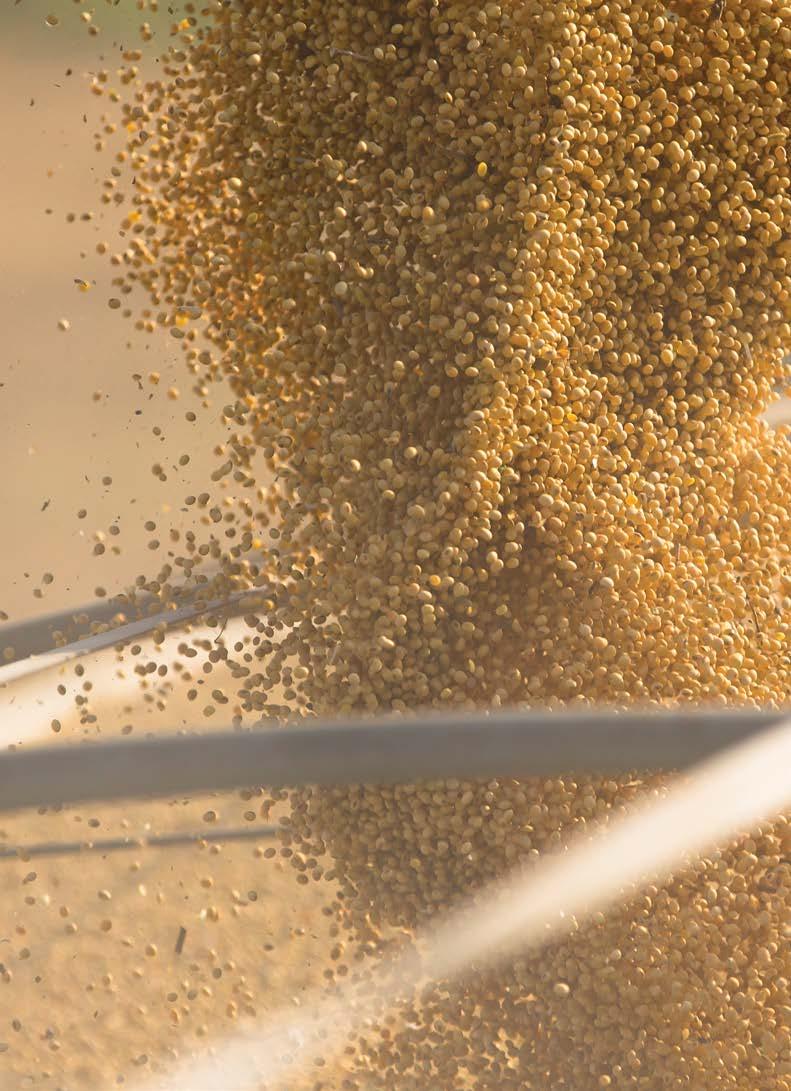
Farm and Ranch Stress Assistance Network
Addressing Mental Health in the Agriculture Sector
The room was quiet, and every head nodded in compassion and understanding. The topic of suicide risk among agriculture workers was raised during our “Managing Farm Stress and Pursuing Wellness” training with a group of women from across Arkansas, and they all knew. They knew someone who had died, a story in their community, or someone whose death had impacted them directly. As they left with their squishy red “stress barn” and a workbook, the women gathered in small groups around the room to chat before moving to the next session. A woman from the session asked for another copy of the materials. She said, “I’m going to put this in the cab of my husband’s tractor. I think he’ll read it there.” Farm families understand the expected daily and seasonal stressors of ag production and the bigger, less predictable stressors that led to the conversations that day. Chronic stress, substance use and abuse, and suicide risk among agriculture workers are subjects often discussed in whispers after a community suffers a loss or in a larger context by journalists and researchers. Despite the importance of mental health issues, the willingness to discuss it within families or in public conversations has only recently become more accepted. The 2014 Farm Bill introduced language creating the Farm and Ranch Stress Assistance Network. The purpose of the Network is the improvement of health literacy and access to services related to mental and behavioral health for those engaged in farming, ranching, and other agriculturerelated occupations. Funding for the program was included in the 2018 Farm Bill and was distributed by the U.S. Department of Agriculture’s National Institute of Food and Agriculture (USDA NIFA) in grants to establish four regional projects creating the national Farm and Ranch Stress Assistance Network (FRSAN). The American Rescue Plan Act of 2021 allocated additional funds to each state department of agriculture to support activities related to FRSAN.
The Southern Region Network is administered through the University of Tennessee Extension and includes partners from 13 states in the southern U.S., Puerto Rico, U.S. Virgin Islands, and dozens of industry, governmental, and educational organizations that serve producers and other rural residents. Each regional project is allocated $7.2 million over four years.
The Southern Region project includes several specific initiatives that will be coordinated with the goal of creating
cohesive strategies for the dissemination of resources, networking of producers across the region, and improved access to mental and behavioral health services.
The strategies designed to meet these needs include:
● establishing a hotline for crisis support services
● developing a comprehensive website with region-specific information and resources
● creating training resources for partner organizations and institutions
● training for representatives working within rural communities to support individuals through direct service and support groups, and
● research into the ongoing issue of chronic stress in rural communities.
The University of Arkansas System Division of Agriculture Cooperative Extension Service is developing the Farm Stress Management and Resilience Project to equip county extension agents, producers, and farm families on ways to cope with stress positively, build a culture of safety and health in rural communities, and connect clients to mental health and wellness resources in their area. These efforts include building a team to conduct Mental Health First Aid training statewide for both adults and youth, specifically targeting rural communities and agriculture workers, creating opportunities for networking among producers and their families, and creating online courses for stress management.
The institutions within the southern region met to coordinate their states’ plans to support efforts related to mental health and stress management to ensure that funds will not be used for duplicate programs or initiatives and will support the larger goals within the region.
To gain insight from farmers, ranchers, and others in Arkansas agriculture, Cooperative Extension launched a needs assessment related to current and future stress management and mental health resources. The needs assessment will help guide the Farm Stress Management and Resilience Project to ensure that clients receive the resources they need to improve their mental health and boost resilience within rural communities.
When discussing asset protection, farm safety, and resource management for farmers and ranchers, conversations tend to focus on physical assets such as land and machinery. The important asset of human safety is often overlooked. Farmers are self-reliant and hardy, but those qualities can become liabilities.
Chronic stress can lead to many detrimental outcomes such as declining mental health, depression, and suicide. Warning signs of these issues can also lead to injury, long-term health conditions, and deterioration of physical and mental health. Signs such as increased substance use including prescription drugs, increased stress within relationships, irritability, or withdrawal, inability to sleep, increased anxiety or worry, or stomach or chest pains can all indicate chronic stress. When stressed, farmers can become distracted which can increase risk of injury or accident.
Investment in improving mental health has far-reaching benefits. Stronger individuals create stronger families and more efficient operations. Those lead to stronger, more prosperous communities. Stronger, more resilient communities
support stronger, more resilient families which raise stronger, more resilient children who continue the cycle of prosperity for the next generation. The strength and self-sufficiency of farm people is exactly what is needed to create the support system necessary to improve mental health across the state, the region, and the nation with the goal of sustaining agriculture and rural communities for generations to come.
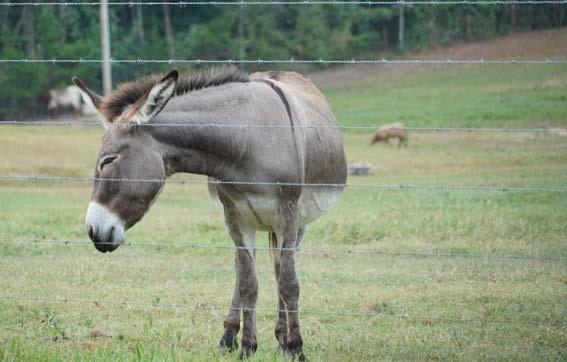
By Brittney Schrick University of Arkansas System Division of Agriculture
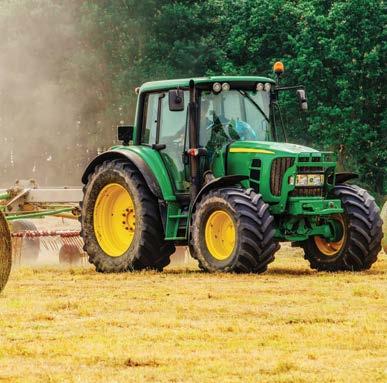
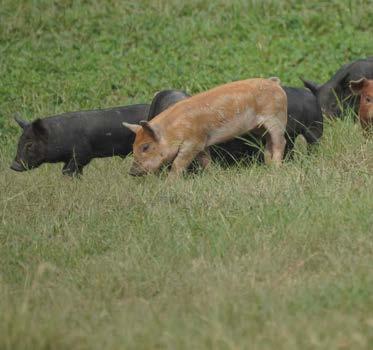
Chronic Stress Warning Signs
• Inability to sleep
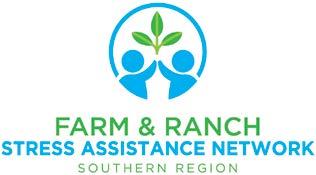
The Arkansas Department of Agriculture awarded Farm and Ranch Stress Assistance Network grants to Arkansas PBS, Agri Health Network, and the University of Arkansas System Division of Agriculture to expand or sustain stress assistance programs for individuals engaged in farming, ranching, and other agriculture-related occupations.
“Agriculture is an inherently stressful occupation that often requires individuals to work long hours and navigate through numerous factors that are beyond their control. Recipients of this grant funding are providing critically important services to the individuals that provide the food, fiber, fuel, and shelter that we all depend on every single day and that will help keep our state’s largest industry successful into the future,” said Secretary of Agriculture Wes Ward.
Arkansas PBS
Arkansas PBS will use the funding to develop programs on mental health challenges faced by agricultural producers for on-air broadcast and on-demand, website, social media, and app viewing. A monthly podcast will be made available at no cost to more than 120 radio stations across the state. More information about the programs can be found at myarkansaspbs.org.
Agri Health Network
The grant funding provided to the Agri Health Network will expand the reach of its That Farm Life podcast launched in March 2021 to provide a platform for those in the agricultural industry to share stories, resources, and create a safe zone where mental health issues specific to agriculture are addressed. Funding will also be used to host informational and educational events for agricultural industry participants. More information can be found at AgriHealth. net and info@agrihealth.net. That Farm Life podcast is available on all podcast apps or through their website.
UA System Division of Agriculture
The University of Arkansas System Division of Agriculture will use the grant funding to train 16 Mental Health First Aid trainers and create a website and virtual offerings for producers to engage with mental health experts and other producers remotely to learn and support healthy stress management. Contact Dr. Brittney Schrick, bschrick@uada.edu for more information.
The grants are administered by the Arkansas Department of Agriculture with funding provided by the U.S. Department of Agriculture’s Farm and Ranch Stress Assistance Network – State Departments of Agriculture Program (FRSAN-SDA).
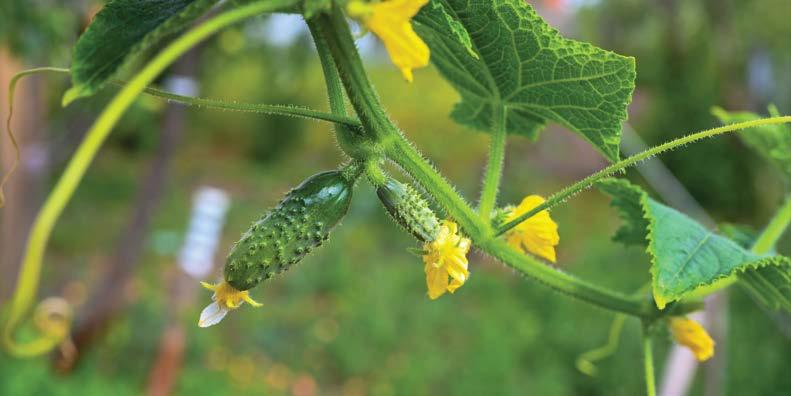
Attack from Above
The American Black Vulture is Protected, But Has it Become a Nuisance?
Dark birds circling the skies, standing in the road, and sitting on fence lines. We have all seen vultures in their natural habitat – cleaning up roadkill or other unsavory sights. While not a fairy tale, they do play a necessary part in the circle of life. However, there are two species in Arkansas, with one proving detrimental to livestock producers.
The American black vulture (Coragyps atratus) is known by multiple names in Arkansas, with the black-headed buzzard being the most common. These birds typically measure between 22 and 29 inches in length and have a wingspan of five feet.
While most vultures take advantage of deceased animals for meals, the black vulture is more opportunistic. Black vultures have also proven to be bolder and have attacked lambs, piglets, calves, and their respective mothers. Livestock producers have reported the vultures attacking and killing their animals, most typically while giving birth. A 2017 USDA report on cattle and calf losses reported that black vultures were responsible for 10 percent of all calves lost to predators in the United States.
Black vultures can also afflict property damage in both rural and urban areas. Large groups of vultures can physically damage homes and commercial buildings by removing window caulking, roof shingles, pool covers, and more. The birds’ excretions can also damage communication towers and electrical transmission structures.
The U.S. Fish and Wildlife Services estimated in 2018 that there were around 9.45 million black-headed vultures in the United States. This number was much larger than previously thought, due in part to their protected status under the Migratory Bird Treaty Act (MTBA). This status means that permits must be acquired before killing the birds.
Depredation permits are available online through the U.S. Fish and Wildlife Service. According to their website, these permits are short-term relief until long-term nonlethal measures can be utilized. Nonlethal measures fit into four categories: harassment, habitat management, cultural practices, and policies.
Harassment includes loud noises, pyrotechnics, scarecrows, and trained dogs. Habitat management includes grass management, vegetative barriers, fencing, and netting. Cultural practices include seasonal timing and landscape placement. Policies can include a nofeeding policy.
These nonlethal measures are encouraged to disperse or discourage the vultures from utilizing areas where they could pose threats to livestock. However, they are not always effective or long-lasting.
Producers can then apply for depredation permits allowing them to “take” the birds. The permits are $50 for an individual producer and $100 for a business. Arkansas Farm Bureau received a depredation permit for black vulture “takes” where these predators are depredating on livestock. Livestock producers may apply for a depredation sub-permit at no cost. After receiving the permit, producers must report the number of vultures harvested and dispose of them properly. In most states permittees are authorized to take migratory birds only with a shotgun no larger than 10-gauge; however, in Arkansas, usage of a rifle is authorized.
The U.S. Fish and Wildlife Service (USFW) along with the Animal and Plant Health Inspection Service (APHIS) stand prepared to help those affected by black vultures. Vulture management can be complicated and site-specific, so consulting with a wildlife professional can be beneficial to successfully resolving the conflict. Livestock producers experiencing severe depredation from black vultures are encouraged to apply for an individual migratory bird depredation permit from U.S. Fish and Wildlife Service (USFWS). Producers cannot be issued a depredation permit by USFWS and an Arkansas Farm Bureau depredation sub-permit.
While progress has been made in making the permitting process more transparent and straightforward, the depredation continues throughout the state. Black vultures are proving to be a continued nuisance to both rural and urban populations causing property damage and significant losses to young, healthy livestock.
Detailed information on the Arkansas Farm Bureau depredation sub-permit for livestock producers is available at arfb.com/pages/
arkansas-agriculture/commodity-regulatoryaffairs/black-vulture-depredation-
permitting-process/. USFW assistance is available by calling (501) 835-2318.
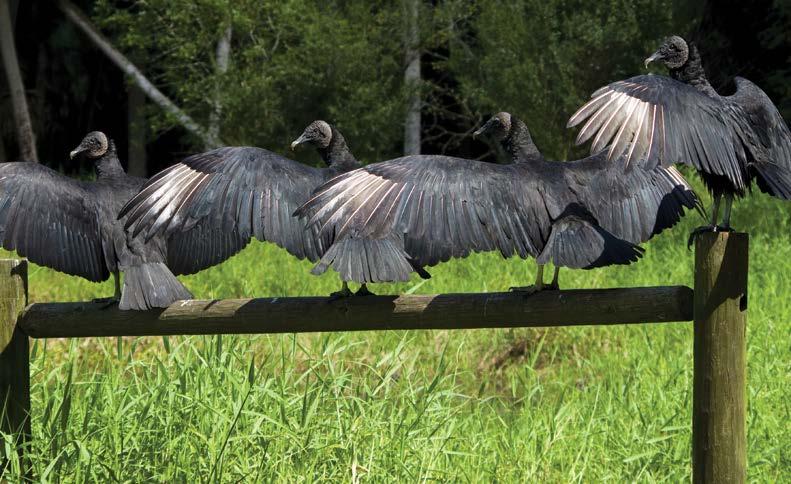
GIANT SALVINIA
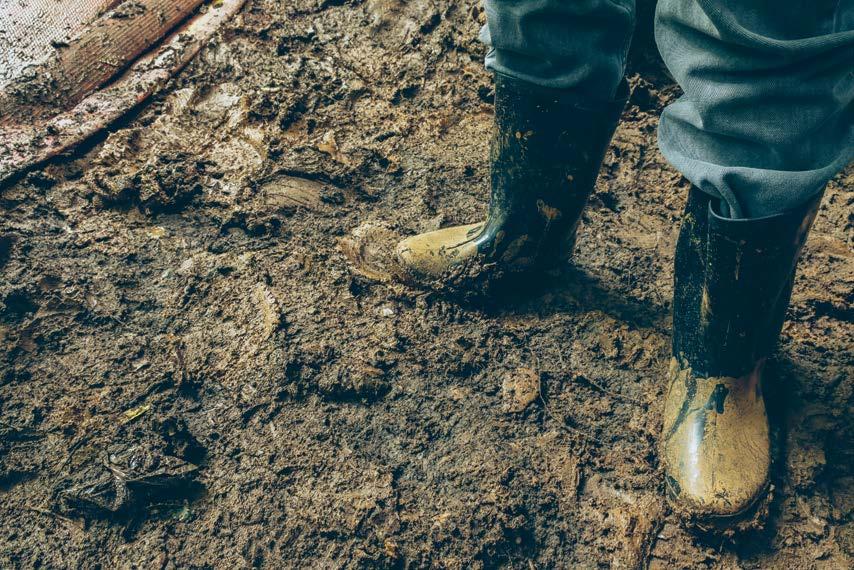
HUNTERS AND FISHERMEN
You can help protect Arkansas’s forests by preventing the movement of INVASIVE SPECIES

CLEAN YOUR BOOTS AND EQUIPMENT before and after you go somewhere new. Seeds and other invasive plants parts can latch onto your boots and equipment and later be dispersed into new environments.
CLEAN AND CHECK YOUR VEHICLE for potential hitchhikers. Some invasive insects will lay their eggs on any flat surface! Decontaminate boats before moving to a new waterway to prevent the spread of invasive aquatic plants.
DON’T MOVE FIREWOOD! Tree-killing insects and diseases can live in logs for months after they’re cut down. Collect or buy firewood on-site whenever possible and burn completely before you leave.
REPORT SUSPECT INVASIVES to the Arkansas Department of Agriculture or the USDA. If you think you recognize these pests, email a photo to caps@agriculture.arkansas.gov or call (501) 225-1598.
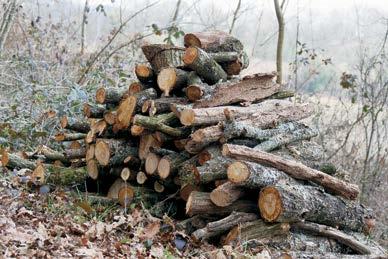
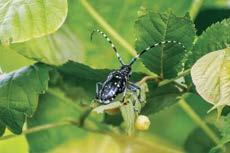
Gypsy Moth Spotted Lanternfly Emerald Ash Borer
Asian LongHorned Beetle
Thousand Cankers Disease
FORESTRY
Forest Management, Emergency Services, Poison Springs State Forest
44 MILLION TONS
of forestry-related products and �mber produced annually
Arkansas produces �mber valued at MORE THAN $400 MILLION ANNUALLY
Arkansas has nearly 19 Million acres of forests, with over 12 BILLION TREES
More than 55% of the en�re land mass of the State of Arkansas is forested
#6
Arkansas is nationally ranked #6 in forestry products valued at OVER $6.4 BILLION
The Forestry Division aerially surveyed nearly 16 Million acres for insect, disease, or storm damage; over 88,000 damaged acres found
1,295
volunteer firefighters trained
15,189
total volunteer firefighters across the state
106
Firewise communi�es in Arkansas
787 WILDFIRES burned over 14,439 acres
Trucks and equipment valued at $6 MILLION distributed to rural fire departments
5,521
landowner assists (suppor�ng forest management plans and general forestry needs)
43
TREE CITIES impac�ng more than 969,000 Arkansas residents
5,082,875
SEEDLINGS SOLD BY BAUCUM NURSERY (hardwood & pine)
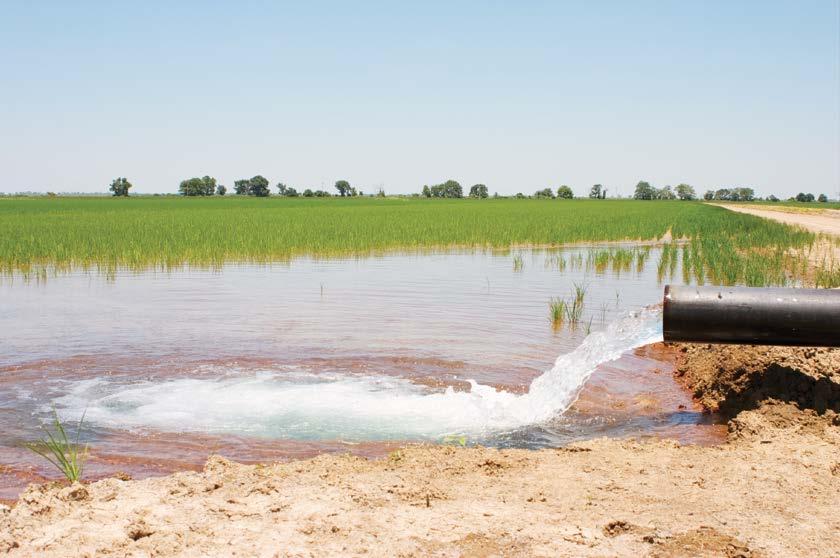
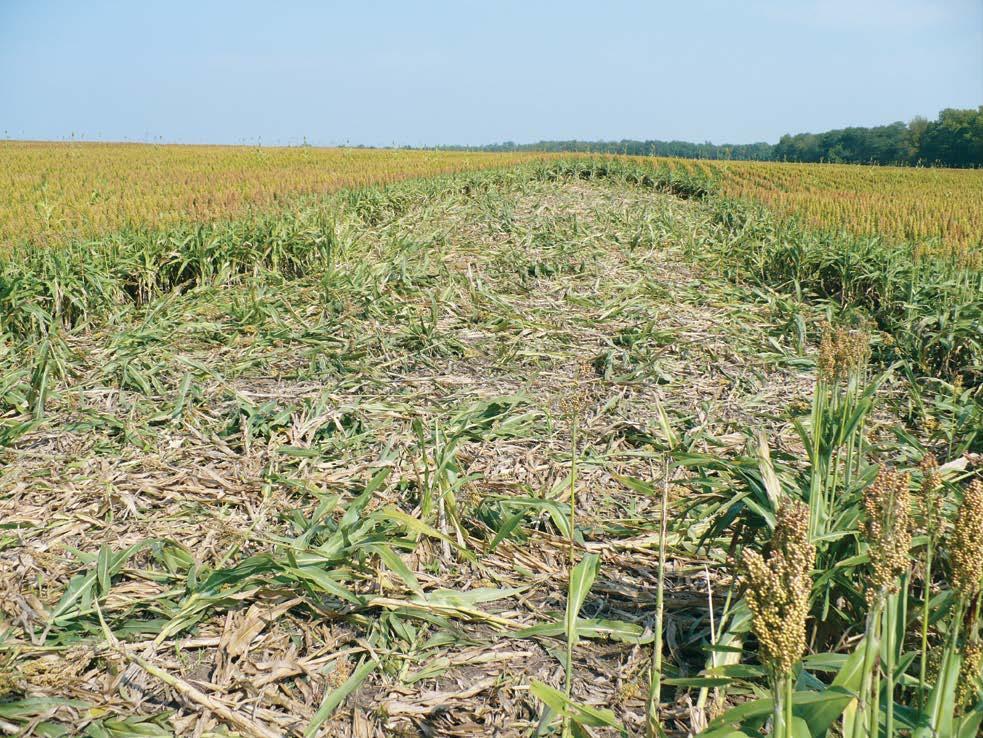

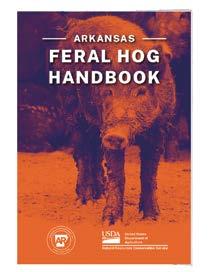


ARKANSAS ASSOCIATION OF CONSERVATION DISTRICTS
Helping people help the land in Arkansas
Conservation Districts are committed to locally led cooperative conservation to promote productive soils, clean abundant water, healthy plant and animal communities, clean air, and efficient usage of water and energy. Conservation District offices are located in every county to provide technical and financial assistance for conservation in partnership with universities as well as state, local and federal agencies. They help landowners, farmers and ranchers develop conservation activity plans and provide advice on the design and management of recommended conservation practices. Please contact us with the information below on how to get started with water quality, soil health, irrigation, wildlife habitat, pesticide risks, and sustainability by using the contact information below. FOR MORE INFORMATION: contact (501) 904-5575 or visit us at www.aracd.org
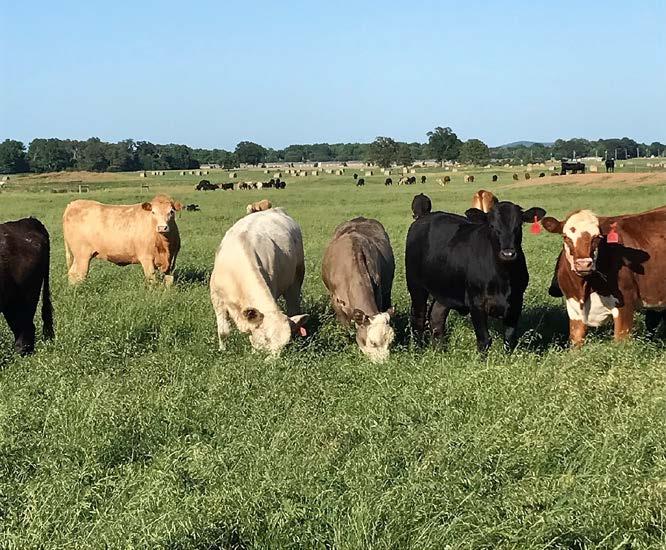
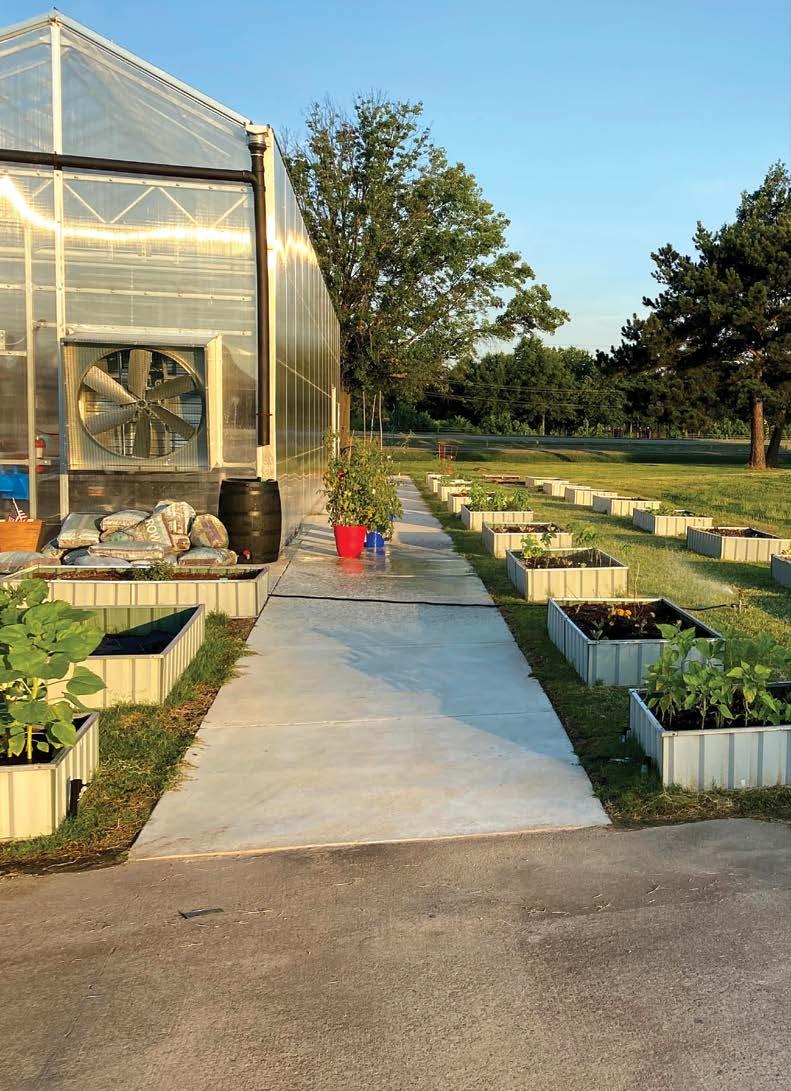
The Magic of a School Garden
Students Love Learning in the Garden
“Are these really peas? How did this get so big? Can I take some spinach home?" exclaimed students who were participating in a garden lesson at Retta Brown ABC preschool. Retta Brown ABC is one of more than 300 schools, child care centers, and alternative learning environments in Arkansas that have gardens.
Across the state, students are learning in all types of gardens. Some are in greenhouses, raised beds, or containers, while others are inside in a windowsill or sprouting under grow lights. The common thread is youth and hands-on education.
School gardens are natural classrooms that provide hands-on learning opportunities for nutrition, agriculture, and experiential education across all disciplines. Gardens help students develop healthy eating habits and discover how food grows. Studies show that when kids are involved in growing food, they are more likely to eat more fruits and vegetables and more willing to try different kinds. However, the reality for many K-12 schools and child care centers is that a school garden is something outside their budget. Often, the money needed to build a garden is more than schools can afford. In November 2020, the Arkansas School Garden Grant Program (Grant Program) was established to help schools start or expand gardens on school grounds. The Grant Program was the first of its kind in Arkansas and was developed by the Arkansas Department of Agriculture with funding from the U.S. Department of Agriculture's (USDA) Specialty Crop Block Grant Program, which aims to increase production of specialty crops, like vegetables and fruits, in school gardens.
Through the Grant Program, 35 schools, 13 child care centers, and four alternative learning environments were each awarded a $500 grant, totaling $26,000, to start or expand their school garden. Students in 23 counties were impacted by these grants, and Retta Brown ABC was one.
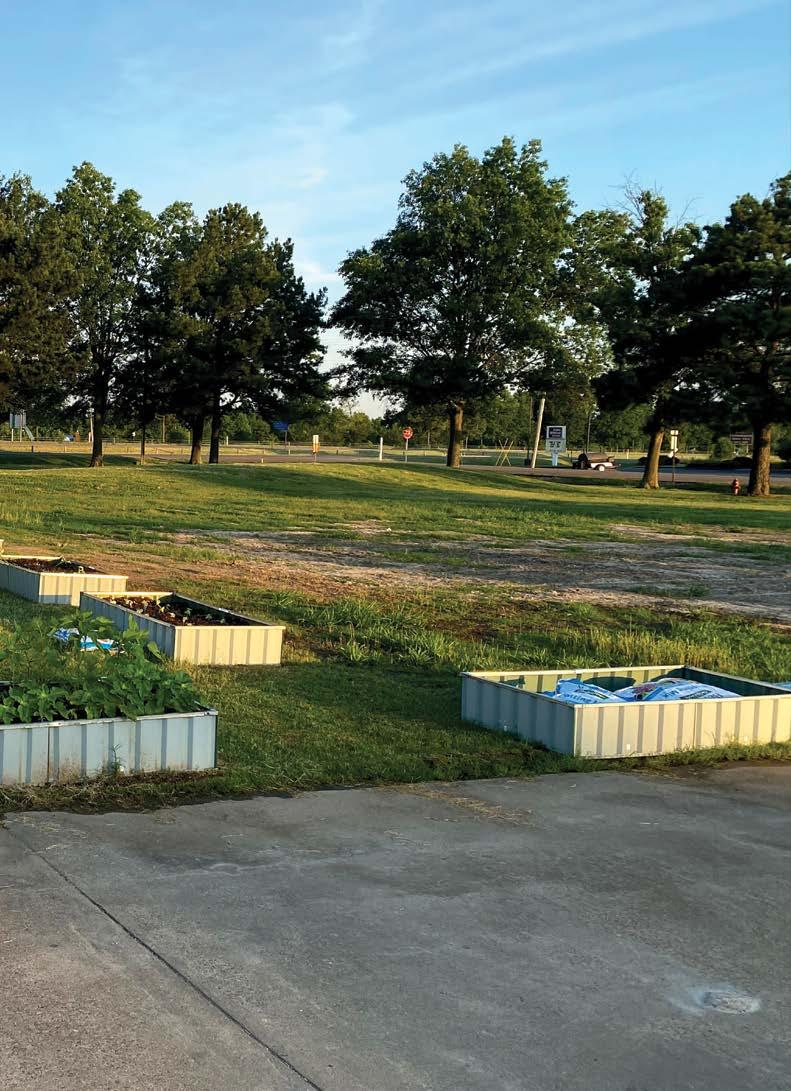
Another recipient of the grant was John Tyson Elementary School. In the hallways of the school you could hear students whispering when they saw a teacher taking students out to the garden, “"LUUUUUCKY! I LOVE learning in the garden."
It wasn’t just students taking note, but teachers also shared what an incredible opportunity for learning the garden provides.
Another benefit of a garden is that it offers a greater understanding of the local food system. In a garden, fruits, vegetables, herbs, chickens, bees, and flowers teach students about Arkansas agriculture and how food gets to our plate.
At the Farm at North Little Rock Middle School, another Grant Program recipient, the very best problem emerged when students were in the garden. Because so many kids discovered they liked kale, they ate it faster than it could be harvested, weighed, and processed.
“I love having this kind of a problem,” shared a teacher at the school.
A garden also builds upon the knowledge gained in English Language Arts, Math, Science, and Social Studies classes. One student at Marion Math Science Technology Magnet School, a Grant Program recipient, shared that one of their favorite parts of the garden is when they get to read in their flower circles. The student announced that “the flowers listen to me when I read!” At Marion Math Science Technology Magnet School, the garden was also used to teach about the Trail of Tears. The class incorporated an Indigenous planting method called the Three Sisters, and a teacher shared that “one of the high points was the connection with the social studies class where the students discovered their personal connections with Native Americans, not only in Arkansas but across the country.” In addition to pairing with Arkansas state standards, gardens give students and teachers a space for relaxation and decompression.
"It's a good way to teach people how to handle growth, and it is therapeutic for those that might be having a hard day. The garden is a resource to think and process while enjoying a hands-on project for all,” said a student at Cabot Freshman Academy, another recipient of the Grant Program.
Furthermore, students are inspired by their school garden and want to build one at their home. One student at Nettleton STEAM, another Grant Program recipient, went home one day and declared, "I want to build my own above-ground bed just like at school. Mom, let's go buy the supplies this weekend." Her mom shared a picture of the student in the garden with the biggest smile on her face.
A garden builds character, teaches patience, and equips students with tangible skills that can be used in their future. At Arkansas Consolidated High School, most of the students had never been exposed to gardening. Receiving funds as part of the Grant Program allowed students to use the new skills they gained by starting gardens at their house. They especially enjoyed the herbs they could grow inside.
All in all, school gardens impact more than just the students; they ripple out to the whole community. Join in the farm to school movement by starting your own school garden, teaching youth about agriculture, and eating delicious Arkansas grown food.
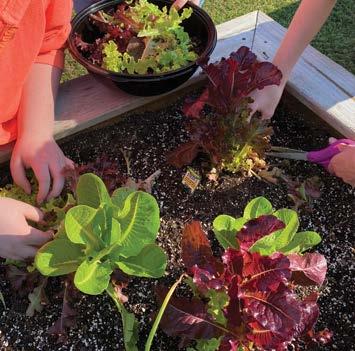

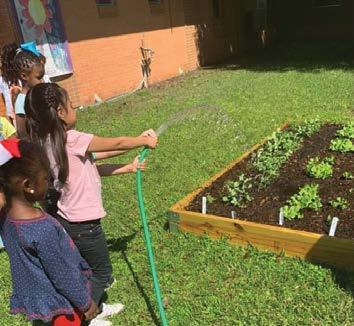
CONGRATULATIONS!
Best Start-Up School Garden Proposal Quitman Elementary School, Quitman Blevins High School, Blevins
Best Community Collaboration School Garden Ozark Junior High School, Ozark Retta Brown ABC, El Dorado
Best Harvest Partnership School Garden The Delta School, Wilson First Friends Preschool, Rogers
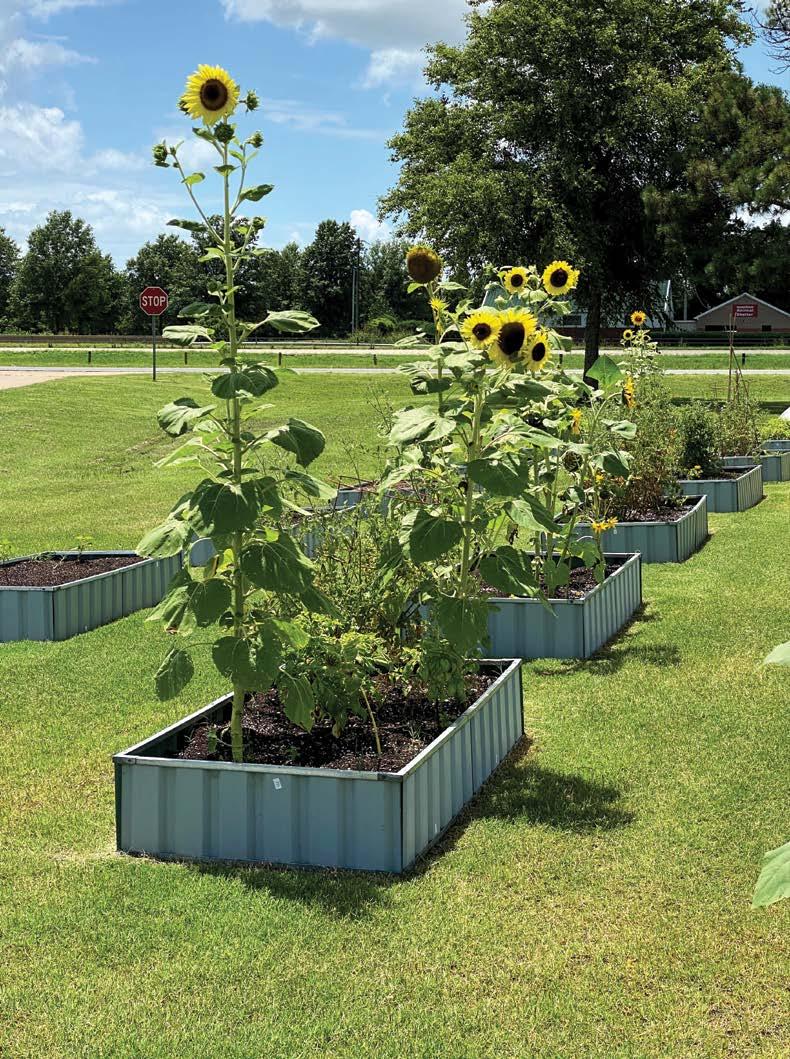
Best Education Based School Garden Ouachita Elementary School, Donaldson Sheridan Elementary School, Sheridan
Best Overall School Garden Cedarville Elementary School, Cedarville
Champion of School Garden Sustainability Forest Park Elementary School, Little Rock
The annual Arkansas Grown School Garden of the Year Contest is sponsored by Farm Credit Associations of Arkansas and the Arkansas Department of Agriculture. The contest started in 2014 to promote the importance of involving young people in the process of fresh food production and cultivation. The contest was available to public and private K-12 schools, early care and education facilities, and alternative learning environments. Awardees were schools that had a school garden during the 2020-2021 school year or planned to start a garden in 2021-2022 school year. Program details are available at: agriculture.arkansas.gov/arkansas-department-of-agricultureprograms/farm-to-school/school-gardens/arkansas-grown-school-garden-contest.
Local Food is More Important Than Ever
The Pandemic Highlights the Need For Easy Access to Local Food
During the first two weeks of the COVID-19 pandemic, online searches for “local food” doubled nationally. Over the following 12 months, searches for “local food” in Arkansas consistently ranked high. As we experienced uncertainty in our traditional food system, Arkansas farmers came through for us. Resourceful, innovative, and dedicated, our farmers adapted their operations to meet the unexpected demand created by supply chain interruptions. Newcomers to the local food scene discovered the enhanced flavors and the increased nutritional value of products produced and grown locally.
The farms growing produce and raising meat for our tables are as diverse as they are numerous. From independent farmers who spend their days at local farmers markets to larger operations that supply local restaurants, sell to retail stores, and ship across the country to national grocery chains, Arkansas farmers work diligently to produce high-quality food. Arkansas is renowned for its commodity crops, but we are also gaining recognition for our farm-to-table agriculture.
Our state is home to colorful and unique dining experiences. The increased attention to the nutritional benefits of locally grown and produced food during the pandemic highlighted this treasure. As specialty crop farmers and ranchers pivoted and struggled to meet demand, more establishments promoted the value of locally grown and produced cuisine.
Expanded interest in Arkansas Grown and Made food is not limited to consumers dining at restaurants and shopping at markets. Schools and institutions are also increasing their local food purchases. The Local Food, Farms, and Jobs Act (Local Food Act) was enacted in 2017 to create, strengthen, and expand local farm and food economies throughout the state. In 2019, the Local Food Act was amended to require institutions that receive $25,000 a year or more from the state and offer a food service program to report annually on their local food procurement. The Local Food Act requires these institutions to set a goal of at least 20% of the institution’s purchases of food products to be spent on local food, and it requires institutions to provide information on their local food procurement budget.
The Local Food Act is making a difference. Food budgets spent on local food by these institutions increased from eight percent in 2017 to 20 percent in 2021 with a significant jump between 2020 and 2021. In addition
to meeting the requirements of the Local Food Act, institutions reported that higher-quality products, increased health benefits for consumers, demand from consumers, and spurring economic development in the community and state, were important decisionmaking factors. The Arkansas Department of Agriculture (Department) partners with the Office of Community Health and Research at the University of Arkansas for Medical Sciences (UAMS) to prepare the annual reports and analyze the data reported.
One of the challenges revealed in the reporting is finding locally grown and produced products. To address this obstacle, the Department’s Arkansas Grown program launched a new website connecting our farmers and producers with schools and institutions interested in purchasing locally grown and produced food – the first website of this kind. The website is a multi-site platform housing the Arkansas Farm to School website alongside the Arkansas Grown website, creating a convenient transition between sites and streamlining the process. Farmers and producers interested in local procurement can easily search for schools and institutions. A “Local Procurement” map on the website enables schools and institutions to quickly locate farmers and producers.
In addition to being user-friendly for consumers, the newly launched website enables distributors to search for local food and connect with farmers and producers. Farmers and producers can join this network for free and create a customized profile showcasing their products and stories with photos and videos. The website will list farmers and producers in the network and include them on interactive maps.
Connecting schools and institutions with farmers and producers within the state boosts local economic development. Educating consumers about the value of eating healthy, local food increases community awareness of Arkansas farming and food systems.
The Local Food Act is a “farm to institution” policy, which aims to increase the purchase of locally grown and processed food in institutions' foodservice programs across Arkansas and encourages the support of Arkansas farmers. For more information on the Local Food, Farms, and Job Act can be found at agriculture.arkansas.gov/
arkansas-department-of-agriculture-programs/the-
local-food-farms-and-jobs-act/.
